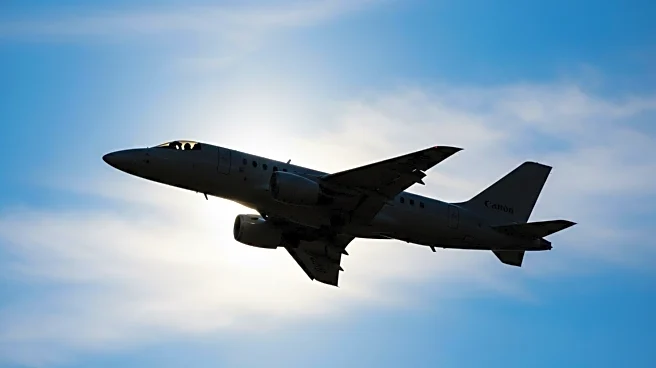What's Happening?
Russian state leasing firm GTLK has entered into agreements to supply 50 UZGA LMS-901 Baikal utility aircraft to the Aerokhimflot alliance. These agreements were signed during the Eastern Economic Forum in Vladivostok and involve enterprises from the Aerokhimflot alliance, which specializes in agricultural and forestry operations. The LMS-901 aircraft are intended to replace the aging Antonov An-2 and An-3 models. Deliveries are scheduled between 2027 and 2030, with GTLK providing the aircraft under lease at preferential rates supported by the state. The aircraft will be used for various operations, including aerial photography, search and rescue, and communications in Siberian and Far East federal districts, as well as Krasnodar.
Why It's Important?
The supply of LMS-901 aircraft marks a significant step in modernizing the fleet used by Aerokhimflot, enhancing operational capabilities in agricultural and forestry sectors. This move is crucial for improving transport accessibility in Russia's Far East region, a priority for GTLK. The transition to newer aircraft models is expected to boost high-tech competencies and provide long-term workload for aircraft manufacturers. The initiative reflects broader efforts to upgrade infrastructure and support regional development, potentially influencing economic activities and connectivity in remote areas.
What's Next?
The scheduled delivery of LMS-901 aircraft between 2027 and 2030 will likely lead to increased operational efficiency for Aerokhimflot. As the aircraft are integrated into service, stakeholders may observe improvements in regional transport and communication capabilities. The focus on modernizing the fleet could prompt further investments in technology and infrastructure, potentially attracting additional partnerships or government support. The development may also influence other sectors reliant on aviation, such as tourism and logistics, by enhancing accessibility and service quality.
Beyond the Headlines
The replacement of the Antonov An-2 and An-3 aircraft with the LMS-901 models highlights a shift towards more sustainable and efficient aviation solutions. This transition may have environmental implications, as newer aircraft typically offer better fuel efficiency and reduced emissions. Additionally, the focus on regional development through improved transport accessibility could foster economic growth and social cohesion in remote areas, addressing disparities in infrastructure and services.









